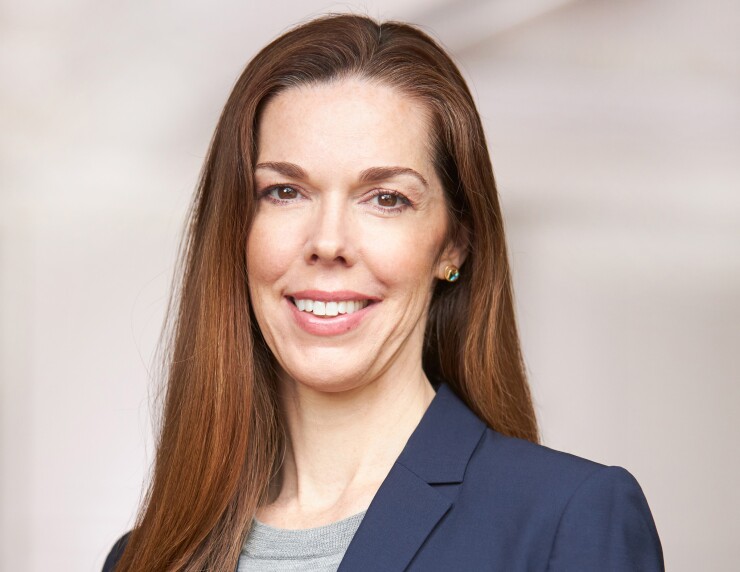General Counsel
Two recent enforcement actions signal the herculean work that Wells Fargo and its legal team, led by Ellen Patterson, still must do to repair the bank's relationship with regulators and its reputation with the public.
In early September, the bank was fined $250 million by the Office of the Comptroller of the Currency for failing to comply with a 2018 consent order that required it to fix deficiencies in its processes for modifying mortgages. And in a separate case, Wells Fargo in late September settled with the Justice Department for $37 million over claims the bank overcharged customers for foreign exchange payments.

These latest infractions are just the latest in a string of legal problems that go back more than a decade. The biggest of all, of course, was the fake-accounts scandal that led to a $3 billion settlement with regulators, forced changes to the bank's management, sales culture and marketing, and is the reason the bank is still operating under an enforcement order that prohibits it from increasing assets above $1.95 trillion.
Patterson, formerly the general counsel at TD Bank Group, joined Wells Fargo in the same role in March 2020. She was one of a number of outsiders brought in by CEO Charlie Scharf to resolve the bank’s legal and regulatory woes and once again put Wells Fargo on a path to growth.
“She will play a critical leadership role on our operating committee as we continue to work on our company’s top priority of meeting regulatory expectations,” Scharf said of Patterson when announcing the hire.
Patterson and Wells Fargo would not comment on specific regulatory actions or court cases, but the bank has made some progress. The OCC has lifted an enforcement order tied to anti-money-laundering violations and raised Wells Fargo's Community Reinvestment Act rating, and in September the Consumer Financial Protection Bureau freed the bank from a 2016 consent order related to its retail sales practices.
Still, enough work remains to likely keep the asset-cap penalty in place for the foreseeable future, and Scharf recently told bank employees that Wells Fargo’s "risk and control-related work spans multiple areas."
Patterson leads a legal team of more than 1,300, including 13 direct reports.
Apart from overseeing the bank’s response to various regulatory matters, Patterson and her team played an instrumental role in Wells Fargo’s participation in the Paycheck Protection Program. The bank funded more than 280,000 PPP loans totaling $14 billion, with an average loan size of about $50,000. More than 40% of the loans went to businesses in low- to moderate-income communities or majority-minority communities as defined by the U.S. Census Bureau.
Wells Fargo’s restructuring has created an opportunity to make the legal team more diverse, according to Patterson. More than half of the legal department's leadership team was appointed in the past year, and the team is currently 46% women and 31% racially and ethnically diverse.
Patterson has restructured the legal department's Diversity, Equity & Inclusion Council, adding more roles for the leadership team in an effort to improve diversity in the department.
Read more:
"We're looking at gender and racial diversity, but also diversity of experience," Patterson said of a focus on adding legal staff from outside the bank.
Patterson's work has also included legal support for the bank's shift to remote work in the spring of 2020 and returning staff to offices, a process that has been delayed more than once because of renewed spikes in coronavirus cases in recent weeks. The legal team has managed policies governing time off for vaccinations, accommodations for workers with child care and other needs, and adherence to local health regulations.
Since the shift to remote work has affected almost all employees, there's an opportunity to recast flexible work as something that can benefit an entire organization, rather than a perk that's often associated with women, according to Patterson.
If remote work “is supported, and people of all genders, and at more levels of the corporate hierarchy, take advantage of flexibility, it will be less of a 'women’s issue,’ ” she said. “It will be something we all benefit from."





